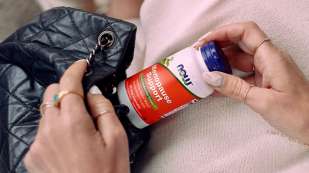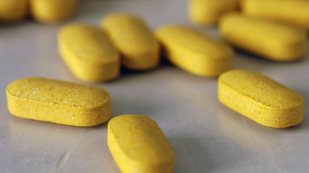Use coupon code CARDAMOM with your purchase of $40 or more for a free†
Cardamom OilBiotin Supplementation and Lab Tests FAQs

Is there a link between biotin supplementation and inaccurate laboratory tests results?
The Food and Drug Administration (FDA) has published a warning regarding the possible interference of biotin supplementation with a few specific laboratory tests. Very few types of biological tests are affected; however, the potential ramifications of erroneous test results for health outcomes are not negligible. Laboratories and healthcare professionals are aware of potential inaccurate results due to biotin supplementation and are using alternative test methods whenever possible. They are working on developing new testing methods that will not be affected by biotin supplementation. In the meantime, it is good to be aware of the issue to avoid potential adverse outcomes.
What type of tests are potentially affected?
Tests that are typically used for the evaluation of endocrine function, including but not limited to PTH (parathyroid hormone), TSH (thyrotropin), fT4 (free thyroxine), TT3 (total triiodothyronine), and Tg (thyroglobulin); as well as other tests such as troponin, serum folate, vitamin D, and hepatitis A & B antibodies may produce inaccurate results when someone is taking a biotin supplement. Some of these tests are at risk of producing results that are falsely too high or too low when biotin is present in the tested sample.
If you are taking biotin and need to have a blood test, what should you do?
Here are our recommendations for consumers by specific situations:
- IF your laboratory test is not urgent: Since biotin is relatively rapidly eliminated from the bloodstream after ingestion, it is recommended that you stop taking biotin at least 8 hours before the scheduled blood test. If you are taking high doses of biotin, it is recommended that you abstain for 72 hours before having blood specimens drawn for laboratory tests.
- IF your laboratory test is urgent and you took your biotin supplement within 8 hours: It is important to notify the healthcare practitioner prescribing the blood test that you are taking a biotin supplement including how much biotin you took the day of the test and during the three days preceding the test.
At what doses can biotin interfere with laboratory tests?
According to the FDA, biotin intakes that are higher than the recommended daily allowance (30 mcg for adults) may cause interference with laboratory tests.
NOW has many products containing biotin with a serving size of over 30 mcg/day. We are working on adding a short statement to our product labels indicating the possible interference between laboratory test and biotin supplementation.
Is there a list of test methods that are known to be impacted by biotin intakes?
Yes, the FDA has established a list of test methods known to be impacted by biotin supplementation.
What should you do if you suspect that a blood test result is inaccurate because of biotin supplementation?
It is important to let your healthcare practitioner know that you suspect that the results are inaccurate. The test can be retaken after a few days of biotin abstinence to verify accuracy.
Where can you find more information about biotin?
The National Institutes for Health provides reliable information about biotin and potential interference with laboratory tests.











